Swiss Tennis serves up post-Federer plans
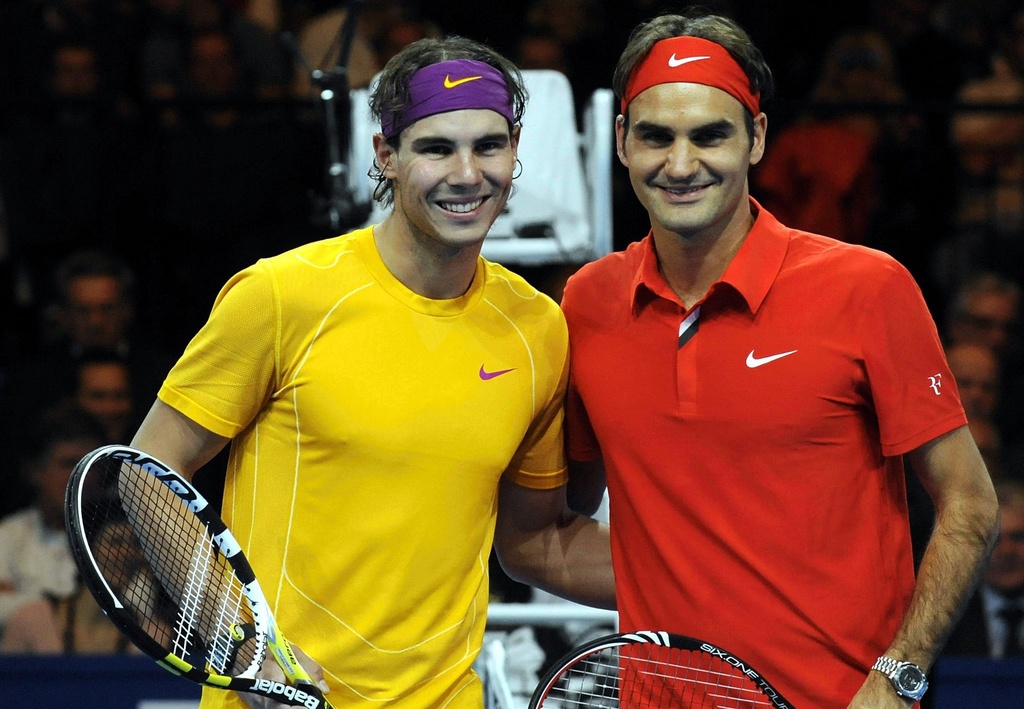
Roger Federer is still collecting trophies and hitting winners between his legs, but he’s not going to be around forever. Swiss tennis is bracing itself for the future.
But tennis fans shouldn’t worry – John McEnroe expects the rivalry between 29-year-old Federer and Spanish world number one Rafael Nadal to last at least a few more years before a new face breaks through the top ranks of men’s tennis.
“There’s no reason to believe… that these guys aren’t going to be around for the next couple of years,” retired American tennis great McEnroe said on Tuesday on the sidelines of an exhibition tournament in Hong Kong.
While 24-year-old Nadal dominated last season to reclaim the number one ranking from his Swiss rival, McEnroe said Federer was still enthusiastic about the game. The 16-time grand slam champion beat Nadal to clinch the season-ending ATP World Tour Finals in London.
“He still seems to love to play. He’s finished the year very strong,” said McEnroe, a seven-time grand slam champion. “We have an incredible rivalry that hopefully will last another couple of years, a year or two more, and we can take advantage of that.”
The two players have swept nearly all the grand slams and controlled the world number one and number two rankings in recent years. Both have won a Career Grand Slam – all four majors.
McEnroe said world numbers three and four, Novak Djokovic and Andy Murray, still needed to improve to break the Federer-Nadal stranglehold.
“They’re going to have to add elements to their games… and to work harder than ever to try to allow themselves to compete against two of the most – if not the most – talented players that ever played tennis,” he said.
Investment
The Swiss tennis association isn’t sitting idly by. On December 16 René Stammbach, president of Swiss Tennis, dug the first hole of the new national tennis centre, which should be completed in just over a year.
The expanded complex comprises courts, bedrooms and classrooms and cost almost SFr6 million ($6.35 million), of which the government is chipping in a quarter. It will benefit not only the ten young Swiss hopes who already train in Biel but also young foreign athletes registered at the brand new Swiss Tennis Academy.
Swiss Tennis aims to use the profits from the academy – each place costs around SFr36,000 – towards the costs of training the Swiss squad.
“It’s a new departure,” Stammbach told swissinfo.ch. “The youngsters will be able to live and train under the same roof. Currently they’re losing a couple of hours a day getting from their homes to the training centre.”
The organisation has also invested in the coaching staff. Heinz Günthardt, a Swiss former professional who has worked with world number ones Steffi Graf and Ana Ivanovic, has been given the task of supervising Swiss Tennis’s six coaches.
Günthardt told swissinfo.ch that they were focusing on quality rather than quantity.
“Russia and France develop ideas on PowerPoint for hundreds of players. There’s no point doing that in Switzerland.
“We have at most three or four players capable of belonging to the elite. We must concentrate on them and give them the best opportunities to develop – whether that’s at Biel, Zurich or elsewhere. The aim is to respond to the specific needs of each player,” he said.
“More realistic”
Why not simply continue with the system that in the past decade has produced two world number ones – Federer and Martina Hingis – as well as a handful of other athletes who can hold their own internationally?
Stanislas Wawrinka for example is currently world number 21 and previously broke into the top ten. Patty Schnyder is now aged 32 and has dropped down to 44, but has a career high of seven. The most promising Swiss female is 21-year-old Timea Bacsinszky, who last year reached number 37.
“This exceptional and lucky collection of stars has created heightened expectations among the public. We’re going to have to be more realistic in future,” said Severin Lüthi, captain of the Swiss Davis Cup team and Federer’s coach.
Stammbach’s hope was that “in five or seven years there’ll be players capable of defending the Swiss colours at the top level of the Davis Cup”.
Lüthi wasn’t so confident. “At present I can’t see any new players who would have the potential to get into the national team.”
Indeed, the best player in the Swiss Tennis A squad, which comprises the best nine under-18 players in the country, is ranked only 783rd in the world.
“Tennis is increasingly athletic – breaking into the top 100 nowadays is more likely when players are around 23,” Günthardt added.
To produce winners, a solid base is necessary. In the past ten years the number of licensed juniors has risen only slightly from 12,926 to 14,613. Among girls the number has even dropped, from 4,678 to 3,871.
Swiss Tennis acknowledges certain “weaknesses” in recruiting. To remedy this, it has announced that August 27 will be a national tennis day, in which clubs around the country will try to attract new young members. The star of the campaign will be Roger Federer.
The Davis Cup is the top international team event in men’s tennis. In 2005, 134 nations entered the competition.
There are five “leagues”, the top being the World Group of 16 nations who compete for the cup. The four-round World Group knockout competition is spread over four weekends during the year. Each tie between competing nations is held in one of the countries.
Teams, which comprise four players, are seeded based on a ranking system released by the International Tennis Federation, taking into account previous years’ results.
Switzerland returned to the 2009 World Group after relegation in 2007. After coming through Europe/Africa Zone Group I, a Federer-aided Switzerland defeated Belgium 4-1 in a World Group Play-off tie. However in August 2010 a Federerless Switzerland were relegated from the World Group after a 5-0 thrashing by Kazakhstan.
Switzerland have never won the Davis Cup, which was won by Spain in 2008 and 2009 and Serbia in 2010. They have reached the finals once, in 1992, losing to the United States.
(With input from Samuel Jaberg)

In compliance with the JTI standards
More: SWI swissinfo.ch certified by the Journalism Trust Initiative

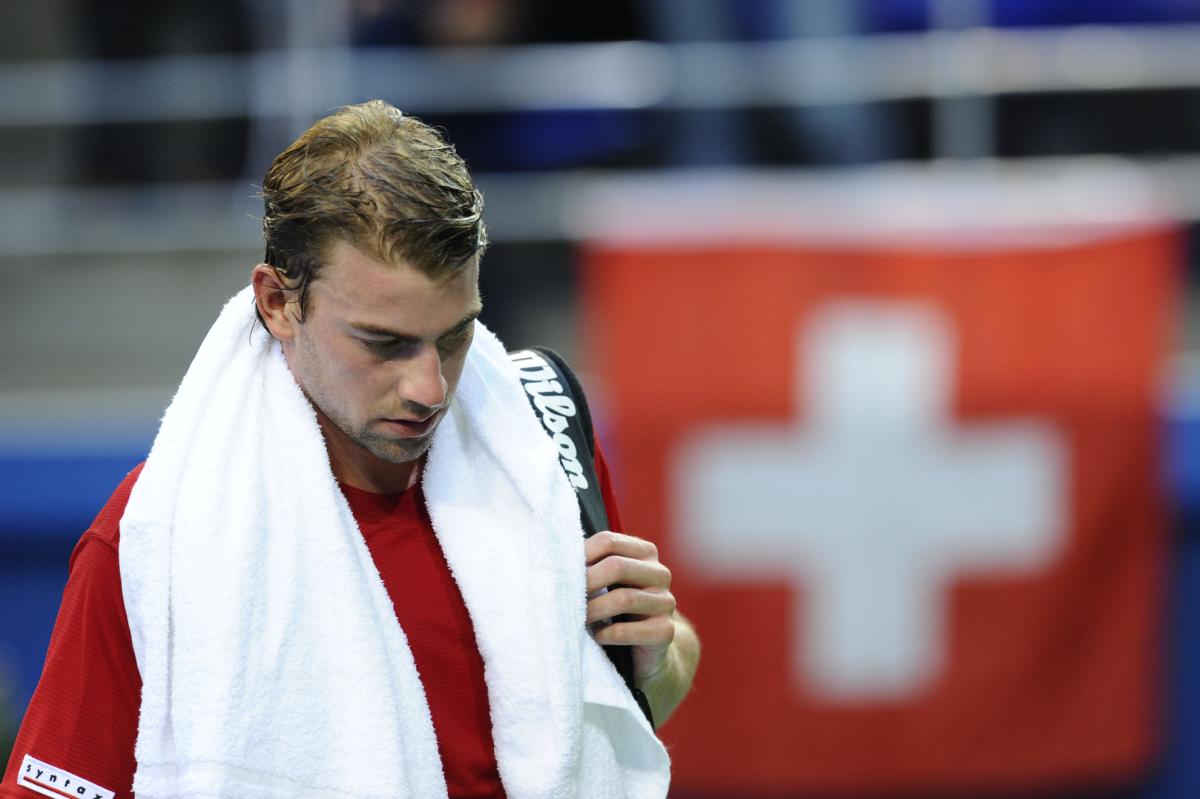
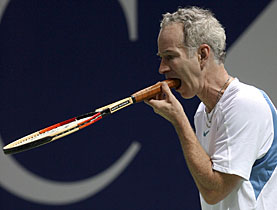
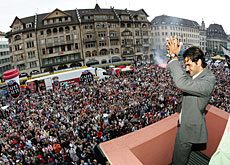
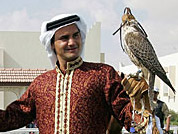
You can find an overview of ongoing debates with our journalists here. Please join us!
If you want to start a conversation about a topic raised in this article or want to report factual errors, email us at english@swissinfo.ch.